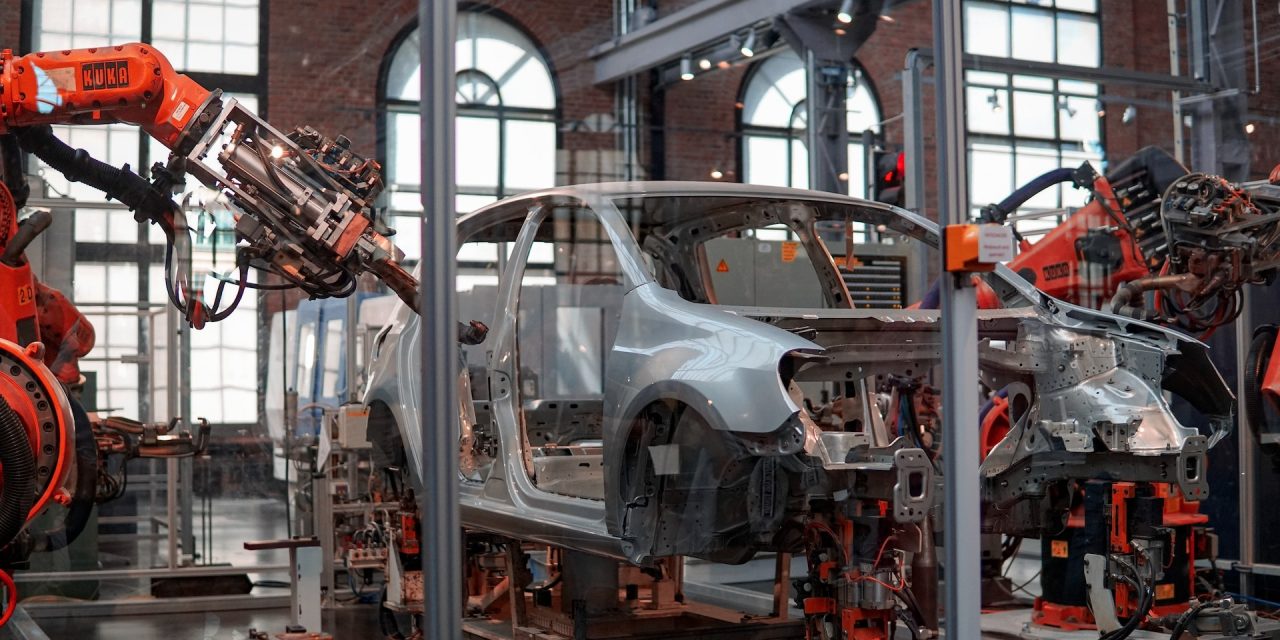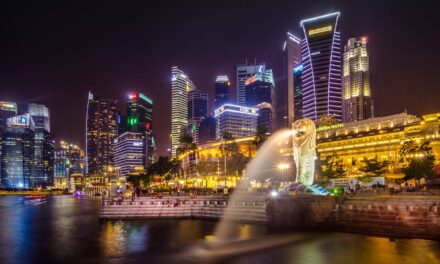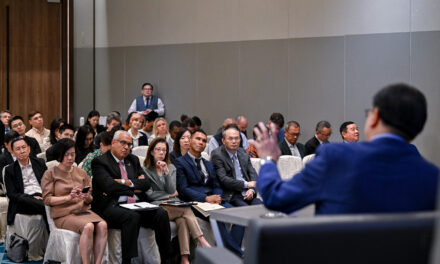The ASEAN manufacturing sector’s pace of growth slowed for the second consecutive month in June, figures from S&P Global showed Monday, as production softened to a six-month low.
The headline S&P Global ASEAN manufacturing purchasing managers’ index fell marginally in June to 51.0 from 51.1 in May. It was still above the 50.0 neutral mark, however, meaning the sector was still expanding.
The headline PMI figure is a composite single-figure indicator of manufacturing performance in a region or country.
“The ASEAN manufacturing sector saw a further improvement in business conditions in June, though the rate of growth was notably softer than that seen at the start of the quarter,” said Maryam Baluch, an economist at S&P Global Market Intelligence.
In April, at the start of the second quarter of 2023, the PMI came in at 52.7.
“Sustained increases in new orders and output encouraged firms to raise their buying activity. Moreover, with supply chains improving, there were further signs of easing inflationary pressure,” Baluch said in a note.
“That said, latest data signaled a further fall in manufacturing employment, marking the fourth straight month of contraction.”
Thailand leads ASEAN region
On a country-by-country basis, Thailand led the region with a PMI of 53.2. This was markedly lower than May’s reading of 58.2, but still indicative of strong growth in the sector.
Thailand has now been the best-performing nation in five of the last six survey periods.
Singapore’s headline figure increased to 52.7 in June from 51.2 in May. Likewise, Indonesia’s manufacturing sector saw its pace of expansion tick up to 52.5, from 50.3 a month prior.
“The rates of expansion accelerated across both nations, pointing to the strongest upticks in seven and two months respectively. Moreover, they were the only two countries to record stronger growth in June,” S&P Global said.
The Philippines’ headline figure came in at 50.9, lower from 52.2 a month earlier.
It is worth noting that Filipino manufacturers have been in expansion territory since February last year, despite June’s figure only showing a modest improvement.
Myanmar’s manufacturing kept its head just above water, showing marginal expansion in June. The country’s headline figure fell to 50.4 from 53.0.
Malaysia’s PMI continued to contract in June. The country’s PMI came in at 47.7, worsening from 47.8 a month before.
Vietnam’s manufacturing sector contracted at a slower rate with a PMI of 47.7 in June, having improved from 45.3.
Looking ahead
“A further expansion in backlogs hints that growing capacity pressures may encourage firms to increase payroll numbers in the coming months,” said Baluch.
“Looking ahead, the region continues to fair well despite the post-COVID boom subsiding. That said, lingering global economic uncertainty and policy rate hikes worldwide map a challenging road ahead,” Baluch added.
S&P Global Market Intelligence Chief Business Economist Chris Williamson told Diplomatic Network (Asia) that ASEAN manufacturers are in a better position relative to the rest of the globe to weather the current macroeconomic climate.
“There is certainly a tough macro climate that is acting as a headwind to ASEAN producers. The global cost of living crisis and rising interest rates are being accompanied by a post-pandemic diversion of spend from goods to services. An easing of the global supply constraints seen during the pandemic has helped boost production this year but is also resulting in many firms unwinding their inventories, exacerbating the downturn in worldwide demand for goods,” Williamson said.
“However, ASEAN producers are well-placed to fare better than average on the global stage in the months ahead, in many cases enjoying rising domestic demand and a shifting of supply lines out of mainland China.”
ASEAN stands for Association of Southeast Asian Nations and is a political and economic union of 10 member states in Southeast Asia. Members include Indonesia, Malaysia, the Philippines, Singapore, Thailand and Vietnam.
The S&P Global ASEAN manufacturing PMI is compiled by S&P Global from responses to monthly questionnaires sent to purchasing managers in panels of manufacturers in Indonesia, Malaysia, Myanmar, the Philippines, Singapore, Thailand and Vietnam, totalling around 2,100 manufacturers. These countries account for 98% of ASEAN manufacturing value added, according to World Bank world development indicator.
Data were collected between June 12 and 26.
*(Update 04/07/2023: inclusion of Myanmar’s June PMI figure; inclusion of exclusive interview with S&P Global Market Intelligence Chief Business Economist Chris Williamson)







